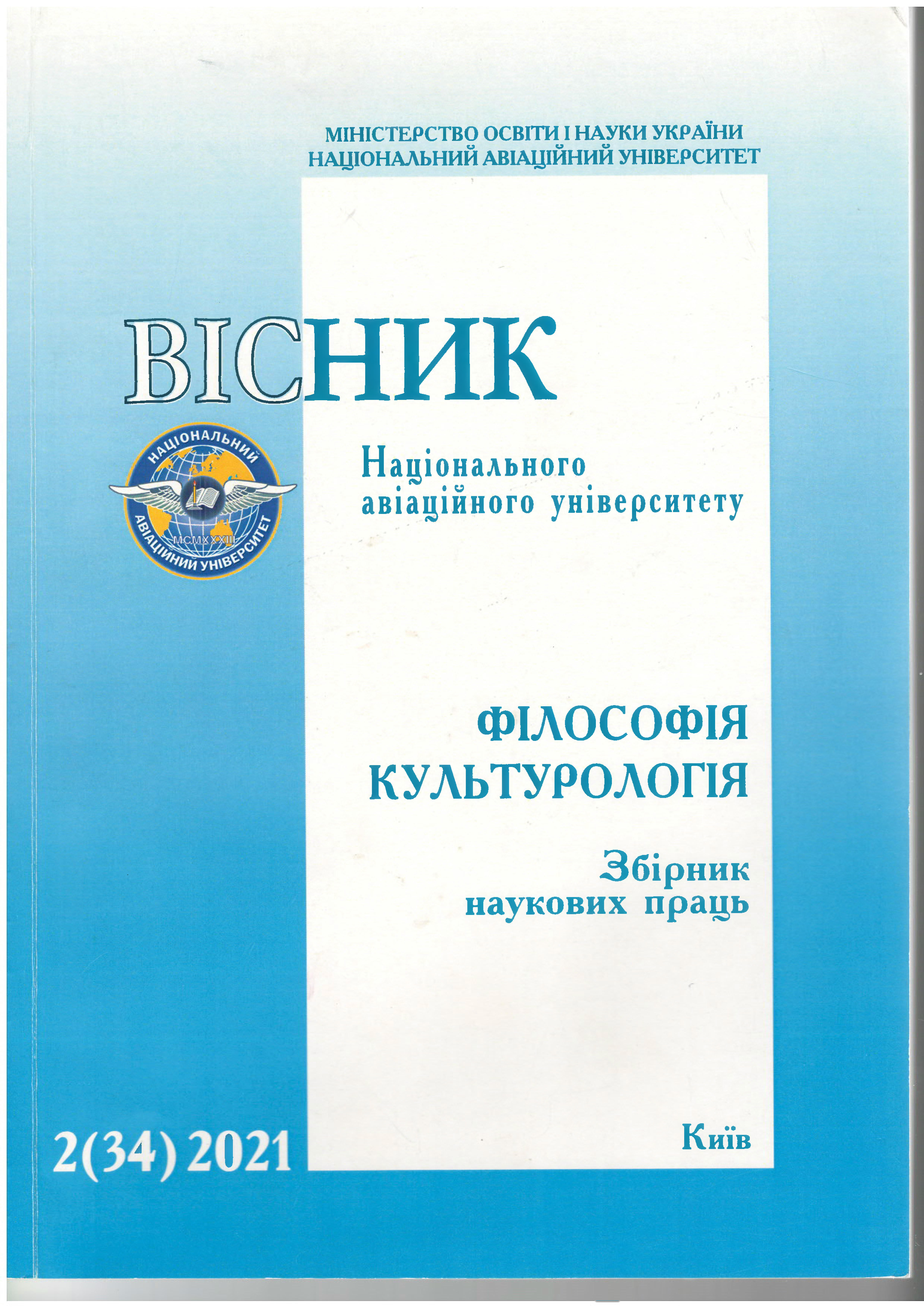КОМУНІКАТИВНІ ХАРАКТЕРИСТИКИ СУЧАСНОЇ КУЛЬТУРНОЇ ДОБИ В КОНТЕКСТІ ЦИФРОВИЗАЦІЇ
DOI:
https://doi.org/10.18372/2412-2157.34.16336Ключові слова:
комунікація, цифровизація, інформатизація, культура, інформаційне суспільствоАнотація
Доведено, що цифровизація як невід’ємний атрибут інформаційної ери сягає за межі суто технологічної
галузі та слугує визначальним чинником трансформації характеристик соціокультурного простору, зокрема
комунікативної взаємодії. Обґрунтовано амбівалентний характер комунікативної парадигми сучасної культурної доби в
контексті цифровизації: з одного боку, вона надає широкі можливості для прискореного інфообміну, міжкультурної
взаємодії, безперервної трансляції повідомлень, спілкування онлайн тощо, а з іншого – означена численними ризиками,
серед яких – перенасичення інформацією, зниження рівня критичності сприйняття інфопотоку, «цифрова нерівність»,
нав’язування контенту, застосування маніпулятивних технологій тощо. Доведено, що важливим чинником подолання
цих та інших проблем на шляху побудови оптимальної моделі комунікативної взаємодії усвідомлюється становлення
інформаційної культури, здатної зберегти традиційні й виробити нові цінності та світоглядні настанови, що
відповідатимуть викликам глобалізації.
Посилання
Scott Julian. The Digitalization of Society. New Acropolis
Library. 2021. January. Vol. 3. URL: https://library.acropolis.org/ thedigitalization-
of-society/
Бодрийяр Ж. Общество потребления. Его мифы и
структура / Ж. Бодрийяр; пер. с фр., послесл. и примеч.
Е. А. Самарской. – М.: Культур. революция, 2006. – 269 с.
Гаврілова Л. Г. Цифрова культура, цифрова грамотність,
цифрова компетентність як сучасні освітні феномени /
Л. Г. Гаврілова, Я. В. Топольник // Інформаційні технології і
засоби навчання. 2017. – Т. 61, вип. 5. – С. 1-14. URL:
http://nbuv.gov.ua/UJRN/ITZN_2017_61_5_3
Денисюк Ж. З. Формування інформаційної культури
суспільства в умовах цифровізації / Ж. З. Денисюк,
О. В. Яковлев // Вісник Національної академії керівних кадрів
культури і мистецтв. – 2021. – № 2. – С. 18-22.
Дротянко Л. Г. Соціальні трансформації мовленнєвої
культури в інформаційну еру / Л. Г. Дротянко // Вісник
Національного авіаційного університету. Серія: Філософія.
Культурологія. – 2014. – № 1 (19). – С. 8-11.
Ничипоренко К. В., Алєксандрова М. В. Цифровізація:
презентація. 2019. URL: https://iie.org.ua/wp-content/uploads
/2019/ 02/ Prezentatsiya_Margarita-szhatyiy.pdf.
Сарнавська О. В. Філософське осмислення особистості
цифрового покоління: постмодерний дискурс / О. В. Сарнавсь-
ка, Т. В. Яковишина, Т. А. Шадюк // Вісник Житомирського
державного університету імені Івана Франка. – 2020. – Вип. 2
(88). – С. 135-145. (Серія «Філософські науки»).
Форстер Э. М. Куда боятся ступить ангелы. Морис.
Машина останавливается: рассказы и эссе: пер.с англ. – М.:
Радуга, 2000. – 397 с.
Хамитов Н. Есть свобода слова, но есть ли свобода мысли?
URL: http://aphy.net/articles/51-magbookath/788-nazip-khamitovis-
there-freedom-of-speech-but-is-there-freedomof-idea.
Шевченко А. Диджитал Эра. Просто о цифровых
технологіях / А. Шевченко. – Киев: Саммит-книга, 2018. – 457 с.
Шпитцер М. Антимозг. Цифровые технологии и мозг / М.
Шпитцер. – М.: АСТ, 2013. – 288 с.


